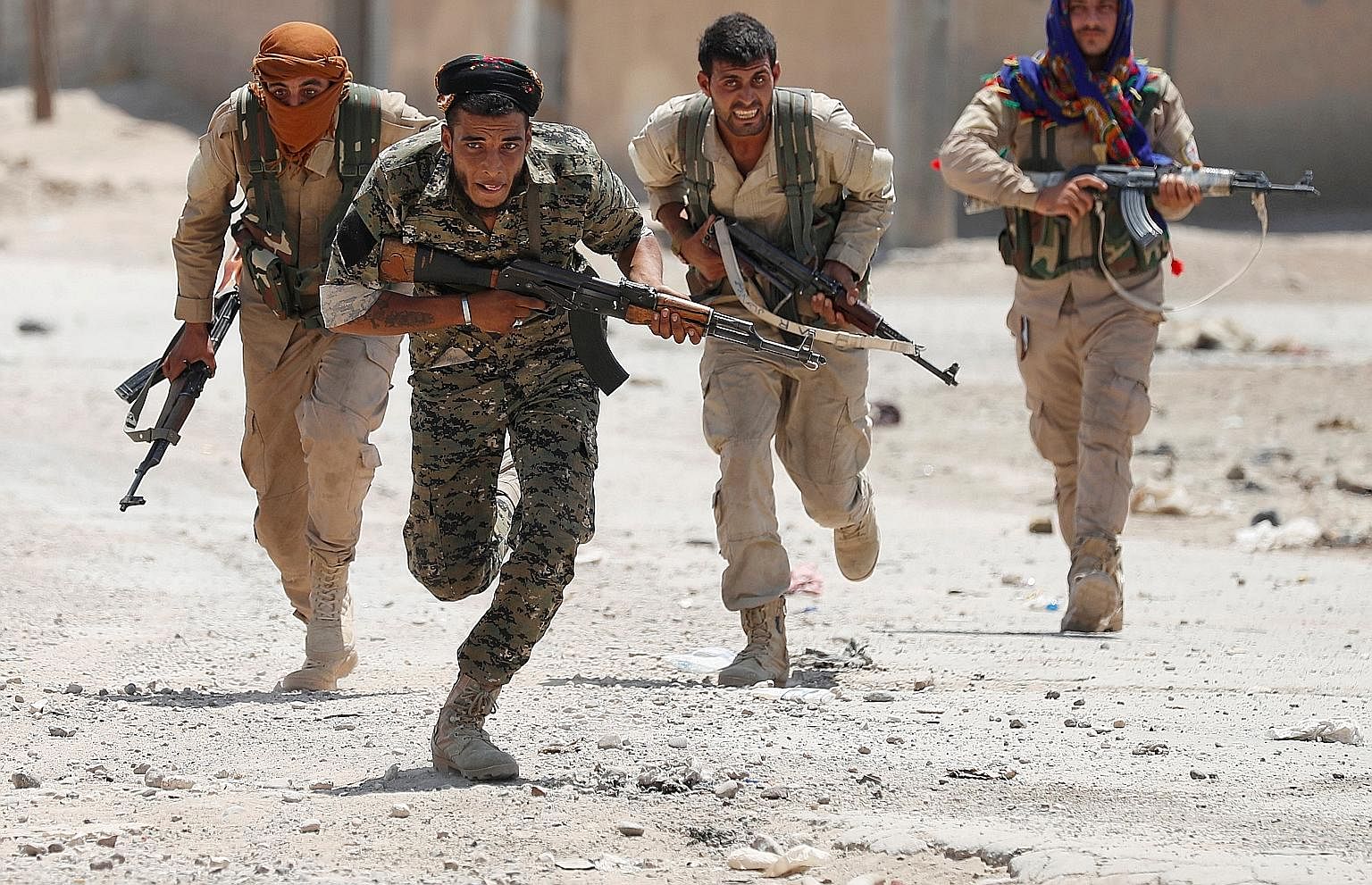It is now only a matter of days before the last neighbourhoods of Raqqa, the Syrian city which terrorist organisation Islamic State in Iraq and Syria (ISIS) proclaimed as the capital of its "caliphate", fall into the hands of a pro-Western coalition of forces.
The liberation of a city, which since 2014 became infamous as the scene of some of ISIS' worst atrocities, including public beheadings as well as a hub for planning attacks around the world, is surely a welcome development.
It will also administer a heavy blow to ISIS, which has an estimated 3,500 militants in Raqqa, most now likely to be killed. "There is no hub any more," Colonel Ryan Dillon, the United States Defence Department's spokesman, told reporters. "They are on the run and we will not allow them to regroup."
The eviction of ISIS from its last major Syrian stronghold, coming hard on the heels of the liberation of Mosul, another ISIS redoubt in neighbouring Iraq, is an undoubted strategic achievement.
But it's unlikely to make the Middle East a safer place, for the danger remains that, as shattered and scattered to the winds as ISIS may now be, it will simply spawn new and even more virulent terrorist organisations.
Notwithstanding the criticism US President Donald Trump generates at home and overseas, the fact remains that in the Middle East he has pursued an effective strategy.
Unlike Mr Barack Obama, his predecessor, Mr Trump blurred the distinction between intervention and non-intervention by quietly beefing up the number of US special forces on the ground in both Syria and Iraq.

And, by authorising occasional missile and air strikes against hostile targets in Syria, Mr Trump has also served notice to Russia, Syria's strategic patron, that while the US is interested in reducing the risk of clashes involving military operations in the region, it would not allow its anti-terrorism goals to be held hostage by Moscow.
The Trump strategy has worked as intended in flushing ISIS out of its strongholds and destroying the bulk of its forces. But it also carries its own dangers, which will soon become evident.
The first consists of the fact that the liberation of Raqqa is largely conducted by the Syrian Democratic Forces, a coalition of various pro-Western militia in which ethnic Kurds drawn from the People's Protection Units (YPG) predominate. The US rightly views the YPG as the most effective local force to fight ISIS.
But neighbouring Turkey regards the YPG as a terrorist organisation and fears its success in Raqqa will be followed by increased Kurdish separatist demands among the estimated 35 million Kurds who inhabit the mountainous regions straddling the borders of Turkey, Iraq, Syria and Iran.
And while the Syrian Arab residents of Raqqa may relish their liberation from ISIS, they are unlikely to take kindly to swapping this for the control of the Kurds.
The US hopes that its hastily created Civil Council of Raqqa, which is now being put in charge of the city, will reassure the local Sunni Arab residents, who are unlikely to accept even partial rule by rival Kurds. Mr Trump has also recently promised Turkish President Recep Tayyip Erdogan that, the moment the battle for Raqqa is won, the Kurds will be reined in.
Yet, as anyone who has worked in the Middle East knows, local proxy militia are not easily switched on and off.
US military planners assume that, the moment Raqqa is won, fighting will move towards the southern parts of Syria, down the Euphrates river valley and nearer the capital of Damascus. In preparation for this, the Pentagon is training and arming two Syrian tribal groups.
But this is also the area where Iranian-trained militia predominate. And Iran is determined to maintain control over a corridor connecting its own proxies in Iraq, Syria and southern Lebanon.
It is around the Euphrates that Iran and US-sponsored proxies could well come to direct blows, with dire consequences for the rest of the Middle East.
ISIS is clearly on its last legs: Two years ago, it controlled 90,800 sq km of territory in Syria and Iraq, but now it probably holds no more than a quarter of that. Most of its top leaders are dead, its troops are decimated, its financial revenues are down to a trickle and foreign fighters are no longer pouring into the region, but fleeing it.
Still, unless a stable political settlement is imposed on Syria and Iraq, the vast ungoverned spaces of today's Middle East will simply generate another terrorist organisation.
We may soon forget what ISIS stood for. But we could well encounter the emergence of yet another deadly organisation, branded under another sinister acronym.

